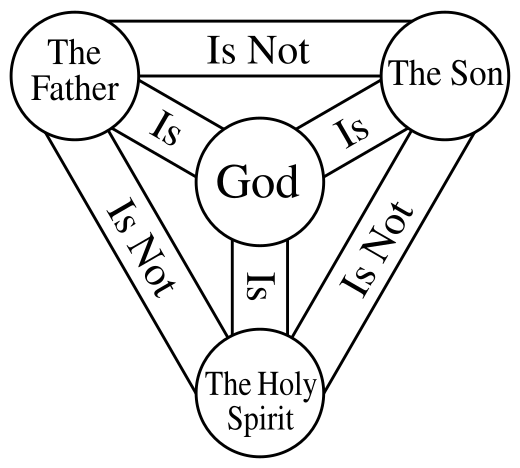AquinasD wrote: He [God] is not capable of instantiating logical contradictions. Why did you think He could? What did you take omnipotence to mean?
McCulloch wrote: And yet Trinitarian Christians insist that God is a logical contradiction. There is one God. The Son of God is God. God the Father is God. But the Son is not the Father.
The Christian doctrine of the Trinity defines God as three divine persons (Greek: ὑποστάσεις): the Father, the Son (Jesus Christ), and the Holy Spirit. The three persons are distinct yet coexist in unity, and are co-equal, co-eternal and consubstantial (Greek: �μοο�σιοι). Put another way, the three persons of the Trinity are of one being (Greek: ο�σία). The Trinity is considered to be a mystery of Christian faith.AquinasD wrote: For one, Christians do not insist God is a logical contradiction. You might believe that the Trinity is a logical contradiction, but that is apart from it being the Christian's stated belief that God is a logical contradiction. Your objection here is completely irrelevant.
According to this doctrine, there is only one God in three persons. Each person is God, whole and entire. They are distinct from one another in their relations of origin: as the Fourth Lateran Council declared, "it is the Father who generates, the Son who is begotten, and the Holy Spirit who proceeds". While distinct in their relations with one another, they are one in all else. The whole work of creation and grace is a single operation common to all three divine persons, who at the same time operate according to their unique properties, so that all things are from the Father, through the Son and in the Holy Spirit. The Nicene Creed describes Christ as "God of God, Light of Light, very God of very God, begotten, not made, being of one substance (homoousios) with the Father".
Question for debate: Is the Doctrine of Trinity a Logical Contradiction?



